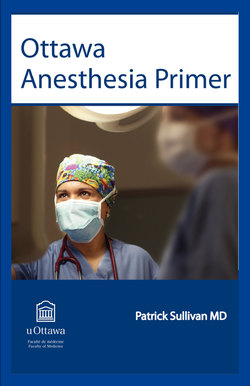Читать книгу Ottawa Anesthesia Primer - Patrick Sullivan - Страница 96
На сайте Литреса книга снята с продажи.
Laryngospasm:
ОглавлениеLaryngospasm results from stimulation of the superior laryngeal nerve and causes involuntary muscle spasm resulting in closure of the vocal cords. This can be caused by secretions or by direct stimulation of the cords. Management of laryngospasm includes gentle positive pressure and suction of secretions if the patient is not hypoxemic. Other maneuvers to assist in relieving laryngospasm include a forceful jaw thrust or pressure on the mandible just anterior to the mastoid. Pharmaceutical options include deepening anesthesia with propofol or paralysis with succinylcholine.
Negative pressure pulmonary edema is an uncommon complication that can have serious consequences and result in an otherwise healthy patient becoming critically ill. This topic is discussed in more detail in Chapter 25.
